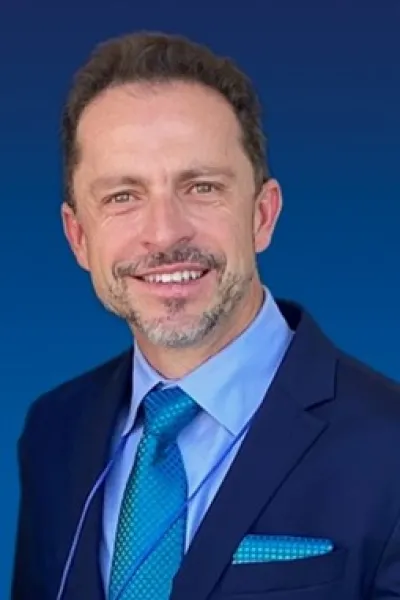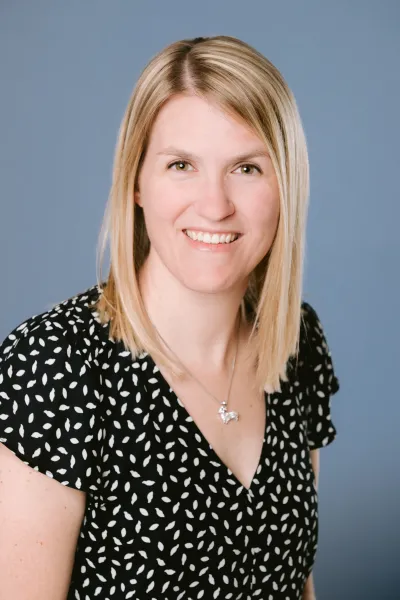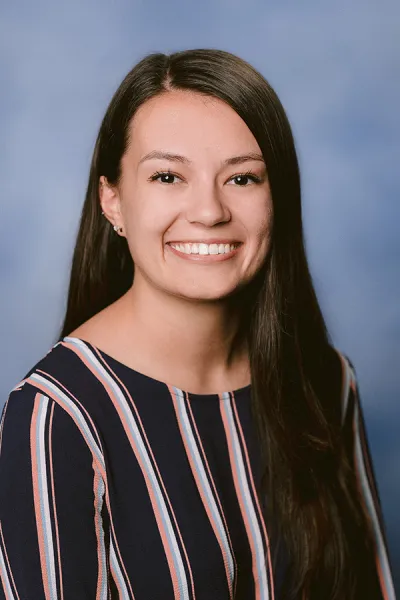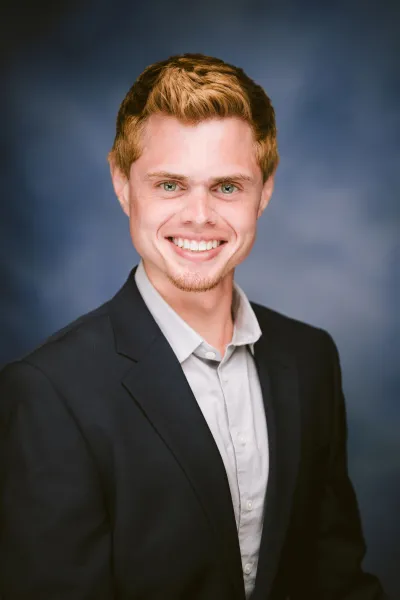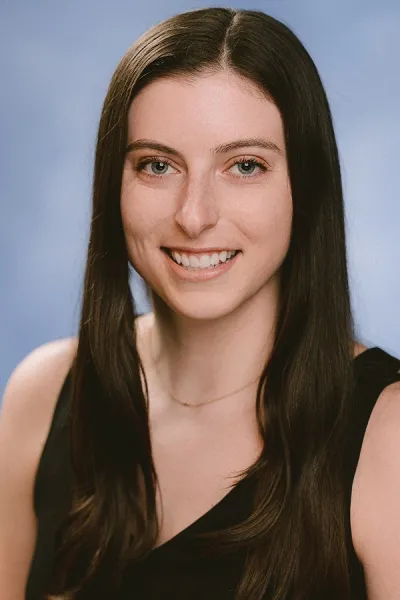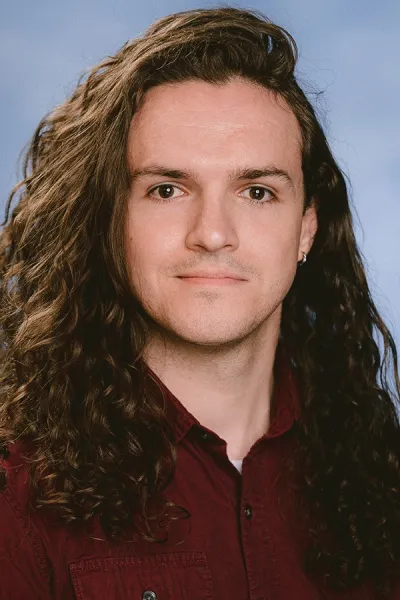Neurology/ Neurosurgery Residency
The residency program in Neurology and Neurosurgery at the Ohio State University provides advanced clinical training and specialization in the diagnosis and treatment of neurologic diseases of small and large animals under the supervision of 3 board-certified specialists. The residency is a 3-year residency program leading to a Certificate of Residency.
Training is designed to ensure development of clinical competence in neurology and neurosurgery by facilitating development of clinical proficiency, clinical skills, and knowledge through exposure to a wide variety of cases at all levels of complexity. This goal is facilitated by location of the Veterinary Medical Center in a large metropolitan area (population over 1.5 million) that provides a rich variety of case material as well as a referral base that includes Ohio, Indiana, Pennsylvania, Kentucky, West Virginia and Michigan. Case management is carried out with the guidance and collaboration of the neurology faculty. State-of-the-art diagnostic and surgical equipment and facilities are available to develop technical expertise in diagnostic and therapeutic procedures.
Residents are ultimately responsible for ensuring they meet all ACVIM requirements associated with their credentialing. The resident is STRONGLY encouraged to read the certification manual published by the ACVIM each year to ensure they understand ALL ACVIM requirements for their residency program. The certification manual is available on the ACVIM website.
Additional Residency Resources learn more about our veterinary health system
Objectives
The objectives of the program are for the resident to:
- Develop comprehensive, state-of-the-art expertise and clinical and surgical proficiency in neurology and neurosurgery
- Satisfy the criteria necessary to qualify for Board Certification, and to prepare the resident for successful completion of the American College of Veterinary Internal Medicine qualifying and certifying examinations
- Prepare for future career goals of teaching, clinical research, scientific publication, or specialized practice
Prerequisites and Application
- All potential residents must meet the minimum requirements and qualifications (see Residency Program Handbook)
- Applicants must be either U.S. citizens or permanent residents of the U.S. the Ohio State University cannot sponsor or process F, J, or H-1B visa applications for resident positions. We also cannot accept TN visas. Successful applicants must be available to report to The Ohio State University Department of Veterinary Clinical Sciences no later than the scheduled beginning of the program.
- Applicants must be graduates of an AVMA-recognized College or School of Veterinary Medicine and have completed a one-year rotating internship or acceptable equivalent clinical experience.
- All requirements must be met to hold and maintain a limited license to practice Veterinary medicine in the State of Ohio – click here for information on licensure requirements.
- For those residents who chose to enroll in an optional Master of Science degree program, the current admission requirements include:
- minimum 3.0 GPA for all undergraduate coursework
- minimum 3.0 GPA for professional (veterinary degree) studies
- minimum 3.3 GPA for all graduate coursework
- The Neurology program will invite applicants under consideration for the position to interview in person during a visit to The Ohio State University. We will hold an in person interview day in late December or early January. Invited applicants must attend this interview day to be considered for the position. If invited to interview, you will receive an email from us after your application has been reviewed. Please contact Dr. Sarah Moore (moore.2204@osu.edu) with questions regarding this process or regarding the residency program.
Employment and Benefits
For a full list of benefits, see the Residency Program Handbook
- Salary
- Health insurance
- Book/travel allowance
- Personal + Professional days leave (from policy)
- External consultation and employment
- Licensure
- Tuition assistance
Orientation
- During the first week of the residency program, all incoming residents participate in a comprehensive orientation program to introduce them to the department, college and university, complete necessary documentation, and to facilitate integration into our program and activities.
- Following the general orientation program for all residents, new residents will meet with the faculty to discuss and plan the initial few weeks and months of the first year of the residency.
Advisors and mentoring
Clinical advisors
Each of the Neurology faculty members will serve in an equal capacity as clinical advisors. Residents will take advice and input from the faculty Neurologist on-clinics and/or the Neurologist involved with the case when it was seen initially.
Academic advisor
The principal academic advisor will be decided once the area of research is decided.
Masters committee (If applicable)
Once the specific area of research is selected, an Advisory committee will be formed that will consist of the academic advisor, at least one of neurology faculty and any other faculty members who may be able to provide advice in the development of a specific research project, during the project and to completion of the study. Typically, the Advisory committee serves as the Examination committee for the Masters defense. These committees must consist of at least 2 graduate faculty members.
Mentoring
The neurology faculty members serve as mentors throughout the course of the residency, graduate course program and research project. We regard mentoring of our residents as one of our most important, and most enjoyable, duties. We are committed to providing support, guidance and help in all aspects of their professional lives during the course of the residency. We care about our resident's professional and personal development and aim to assist our residents in being the best that they can possibly be and to prepare them for successful careers in neurology.
Clinical Service Responsibilities
- Residents are expected to participate in all small and large animal clinics, emergencies and in-house consultations.
- When possible, residents should examine all outpatients and hospitalized patients.
- Residents should assist in and/or perform all neurologic procedures. The degree of resident involvement in the procedure will be based on the individual skill level of each resident and is expected to increase with each year of training the resident receives.
- Off-clinics Time: The resident typically have at least 24 weeks off-clinics during the 3-year program. This time should be used for vacation (10 working days); research, studying for board examination, and attendance at the ACVIM Forum in the second and/or third years of the program.
- Additionally, each resident will have a total of 15 working days of professional leave available to them during their residency for use to attend conferences, externships or other approved scholarly activities.
- Vacation/Illness (See Residency Program Handbook)
Vacation Time
- The resident may only schedule vacation time after the approval of all faculty members.
- Leave slips must be filed with the Department prior to vacation days and the small and large animal reception desks must be informed in advance.
Illness
- In the event of illness, the resident should notify a technician and the faculty member on clinical service as early as possible.
Diagnostic/Therapeutic Procedures
The resident is expected (by the end of the residency) to be competent to set up and perform the following diagnostic procedures (this is not an all-inclusive list):
- Obtain and interpret CSF samples
- Evaluate and interpret spine and skull radiographs, CT of the spine and skull, myelography, and MR imaging of the spine and brain
- Common electrodiagnostic procedures to include:
- EMG
- Nerve conduction studies
- Repetitive stimulation testing
- BAER
- Basic EEG and basic EEG interpretation
- Obtain nerve and muscle biopsies
Surgical Procedures
The resident is expected to (by the end of the residency) be competent in the set up and performance of the following surgical procedures:
- Hemilaminectomy in the thoracolumbar spine
- Cervical ventral slot procedure
- Dorsal laminectomy in the cervical and thoracolumbar spine
- Fenestration
- Craniotomy (transfrontal and rostrotentorial approaches)
- Dorsal decompression of the lumbosacral space
**The resident is also encouraged to become familiar with additional procedures such as cervical hemilaminectomy, foramen magnum decompression, methods of spinal fixation and atlantoaxial stabilization, and will gain experience in these procedures as cases present themselves.
Medical Records
Medical records should be completed in a timely fashion and should include the following:
- Chart contains updated master problems and has been finalized
- Neurologic examination completed
- Referral letter sent.
- In-patients SOAPs should be read daily and comments made in the chart during the hospitalization of the pet to ensure that the patient is being properly cared for and that the student understands the diagnosis, treatment plan and prognosis.
- Surgery reports should be reviewed, corrected and final copies approved, within 48 hours of the surgery. It is the responsibility of the primary clinician on the case to make sure that the surgery reports are complete.
- Follow up on laboratory tests and call owners and referring veterinarians with results. It is acceptable for the student on the case to call owners with results. Referring veterinarian communications should be done by the resident on the case.
- Follow up on pathology reports and call owners and referring veterinarians with results.
After-hours Emergencies
- It is the resident's responsibility to arrange a schedule for emergency coverage and to ensure that the front desk, the emergency service and the senior faculty on clinics is aware of this schedule
- The resident on call must be always reachable by cell phone
- After hours neurosurgery duty is shared between the neurology and surgery residents. After hours medical neurology support is provided by the neurology residents
- The Resident should contact the Senior clinician to discuss the plan for emergency cases
Hospitalized Patients
- Residents are expected to complete a physical and neurologic exam on all hospitalized patients prior to attending morning rounds.
- Residents are responsible for checking ICU orders to ensure accurate treatment of the patients.
- The resident or the student on the case should update owners on the condition of the patient each morning after evaluation.
Patient Log and Surgery Log
- Residents are encouraged to maintain a patient log.
- Residents are required by ACVIM to maintain a surgery log. It is important that this log document the time in surgery for each procedure, as ACVIM requires proof that the required 50 hours of surgical time have been met.
Teaching Responsibilities
- Teaching responsibilities include clinical teaching of senior and junior veterinary students assigned to the resident's clinical service.
- During receiving clinics (appointments), the resident should strive for a balance between efficiency and the learning needs of the students.
- Residents may be asked to conduct sit-down rounds as clinical experience and teaching skills allow. The Resident may also conduct topic rounds to senior students.
- Residents also participate in teaching the Neurological examination to veterinary students during laboratories.
Educational Opportunities
- Courses are offered at the College of Veterinary Medicine (a full curriculum of graduate courses on a range of topics is offered within the Department of Veterinary Clinical Sciences) as well as by other colleges at The Ohio State University.
- Time will be allowed for weekly Journal Clubs, book clubs, and specific rounds (neuropathology rounds, neuroimaging rounds). The Resident(s) should lead these activities, selecting journal articles and interesting cases. The Neurology faculty will participate and assist the Resident in selecting appropriate case material and articles.
Research and Scholarly Activity
Research Project
- Residents are responsible for developing, with the assistance of the mentor, a research project suitable for publication. Residents, working alongside the academic (research) advisor, are expected to write a grant proposal and to successfully acquire funding for their projects.
- Residents are expected to present the results of the research project at CVM Research Day and at least one annual ACVIM meeting. Residents are expected to successfully complete a research project.
- Residents are expected to submit their research project for publication
Independent Study
- The resident is responsible for reviewing journals at least on a monthly basis for literature required to read for boards (please see attached reading list published by the ACVIM, subspecialty of neurology).
- The resident is expected (over the course of the residency) to read and become familiar with the contents of all books on the suggested reading list published by the ACVIM, subspecialty of neurology.
Evaluations
Formal Resident Performance Evaluations are completed twice yearly. Details of the nature and structure of these evaluations can be found in the Residency Program Handbook.
Specific ACVIM Neurology Residency Requirements
The resident must complete at least 75 weeks of clinical training in neurology, with at least 50 of these weeks under direct supervision of an ACVIM diplomate. Standard residency programs must be pre-approved by the Neurology Residency Training Committee.
- The resident is required to maintain a case log to assist in the application process for certification and to allow the resident and their committee to determine if an appropriate balance of case material is being seen. The ACVIM requires that records be retrievable.
- The resident is required to keep a week to week schedule during the residency. A summary of the weekly schedule must be signed by both the resident and advisor and submitted to the ACVIM Neurology Credentials Committee by October 1 following the end of each year of residency.
- A residency advisor, who serves as ACVIM mentor is assigned to each resident at the beginning of the residency program. The resident's progress will be reviewed by the Neurology faculty every 6 months.
Important Dates to Keep in Mind
Summary of Procedures for Candidate Certification
ACVIM, Specialty of Neurology
Registration
General Examination
Send to: ACVIM Office
When: By October 1 of the year preceding the examination
What: Resident Advisor progress letter, two multiple-choice questions,
Candidate Fee Remittance Form and General Examination Fee
Reviewed by: ACVIM Office
Response time: Thirty (30) days
Credentials for Specialty Examination
Send to: ACVIM Office
When: By October 1 of the year preceding the examination
What: Credentials packet, Candidate Fee Remittance Form and
Credentials Fee
Reviewed by: Neurology Credentials Committee
Response time: Sixty (60) days
Registration and Fee for Taking the Specialty Examination
Send to: ACVIM Office
When: By February 1 of the year of the examination (for candidate retaking
the examination – see section D.2.j for your deadlines)
What: Candidate Fee Remittance Form and Specialty Examination Fee
Reviewed by: ACVIM Office and Neurology Credentials Committee
Response Time: Thirty (30) days
Updated 8/29/2022
Contact Us
For general inquiries, please contact the VCS Education Program Coordinator:
Chelsea Souder
VCS Education Program Coordinator
Phone: 614-688-0332
Email: Souder.60@osu.edu
